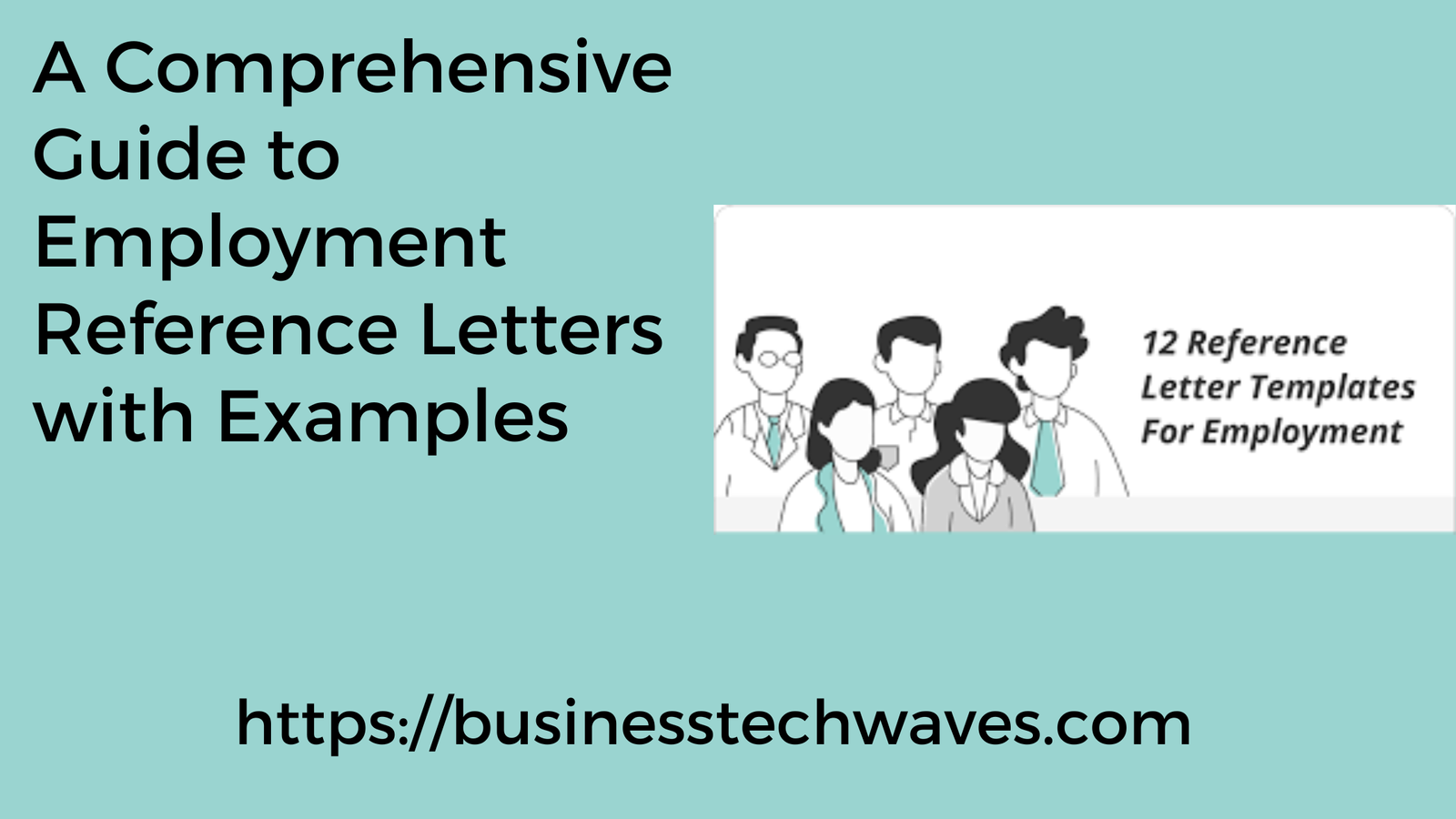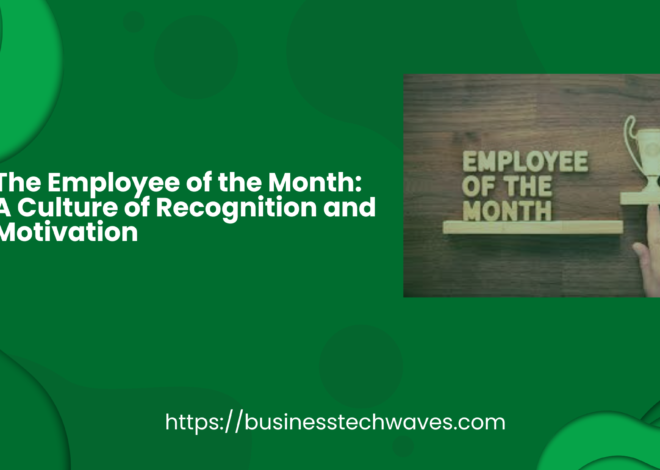
A Comprehensive Guide to Employment Reference Letters Examples 2024
Employment reference letters examples, often referred to as letters of recommendation, are crucial documents in the job application process. They provide a potential employer with an independent assessment of a candidate’s skills, qualifications, and character. These letters serve as a bridge between the candidate’s past performance and future potential, and they can often be the deciding factor in whether an applicant gets hired. In this article, Employment reference letters examples we will delve into the purpose, structure, and types of employment reference letters and provide examples to guide you through the process of writing or requesting one.
The Purpose of Employment Reference Letters Examples
Employment reference letters examples fulfill several purposes:
- Validation of Skills and Experience: A reference letter helps confirm that the applicant has the experience and qualifications listed on their resume.
- Character Endorsement: It offers insight into the candidate’s personal traits such as work ethic, leadership, teamwork, and professionalism.
- Aiding in Decision-Making: Employers can use these letters to differentiate between applicants and decide who might be the best fit for the organization.
- Bridging the Gap: In cases where an interview alone might not fully capture the applicant’s qualifications or potential, a reference letter can provide further clarity and support.
Structure of an Employment Reference Letter
A well-structured reference letter typically follows a specific format:
- Contact Information: The recommender’s full name, position, company name, address, and contact information should be included at the top of the letter. The date should also be listed.
- Salutation: If the recipient of the letter is known, the recommender can address them directly. If not, a simple “To Whom It May Concern” will suffice.
- Introduction: The first paragraph should introduce the recommender, their relationship with the candidate, and how long they have known the individual.
- Body Paragraphs: These paragraphs should detail the candidate’s skills, accomplishments, and character traits. This section can include examples of how the candidate excelled in their previous role.
- Conclusion: The final paragraph should offer a strong endorsement, encouraging the recipient to seriously consider the candidate. The recommender should offer their willingness to discuss the applicant further.
- Signature: The letter should end with the recommender’s signature and printed name, as well as any relevant contact information.
Types of Employment Reference Letters
There are several types of reference letters, depending on the context in which they are requested. The most common types include:
- Professional Reference Letters: These are written by a former employer or manager and focus on the candidate’s work history and professional skills.
- Character Reference Letters: These are often written by a friend, colleague, or mentor and focus on the individual’s personal traits, such as integrity, responsibility, and interpersonal skills.
- Academic Reference Letters: These letters are written by a professor or academic advisor and are usually requested when applying for internships, scholarships, or academic-related jobs.
Employment Reference Letters Examples 1: Professional Employment Reference Letter
[Your Name]
[Your Position]
[Company Name]
[Company Address]
[City, State ZIP Code]
[Email Address]
[Phone Number]
Date: [Month, Day, Year]
To Whom It May Concern,
I am writing this letter to wholeheartedly recommend Sarah Johnson for the position of Marketing Manager at your company. I had the pleasure of supervising Sarah during her time at ABC Marketing Solutions, where she worked as a Senior Marketing Executive for three years.
During her tenure, Sarah demonstrated exceptional skills in marketing strategy development, digital campaign management, and client relations. She spearheaded several successful campaigns, including one that resulted in a 20% increase in revenue for our largest client. Sarah’s ability to combine creativity with analytical thinking consistently exceeded our expectations.
In addition to her technical skills, Sarah exhibited outstanding leadership qualities. She managed a team of five junior marketers, providing them with the guidance and support necessary to help them thrive. Her professionalism, work ethic, and problem-solving capabilities made her an invaluable asset to our team.
I have no doubt that Sarah will bring the same level of commitment and innovation to your organization. Please feel free to contact me at [Your Phone Number] or [Your Email Address] if you require any further information.
Sincerely,
[Your Name]
[Your Position]
[Your Company]
Employment Reference Letters Examples 2: Character Reference Letter
[Your Name]
[Your Address]
[City, State ZIP Code]
[Email Address]
[Phone Number]
Date: [Month, Day, Year]
To Whom It May Concern,
I am writing this letter in support of Michael Brown, whom I have had the pleasure of knowing for the past five years. Michael and I worked together on several community service projects, and I can confidently attest to his dedication, character, and commitment to excellence.
Michael consistently demonstrated qualities that would make him an excellent employee. He has a strong work ethic, is highly organized, and possesses excellent communication skills. During one of our most challenging projects—coordinating a charity drive—Michael showed incredible leadership and attention to detail. He was responsible for coordinating a team of volunteers, managing logistics, and ensuring the event’s success, which ultimately raised $10,000 for our local shelter.
Beyond his professional attributes, Michael is also a person of high integrity. His positive attitude, compassion for others, and willingness to take on challenges make him a joy to work with.
I highly recommend Michael for any role he pursues, confident that he will excel in any professional environment. Please do not hesitate to contact me at [Your Phone Number] or [Your Email Address] if you require further information.
Sincerely,
[Your Name]
Employment Reference Letters Examples 3: Academic Reference Letter
Dr. Emily Smith
[Department Name]
[University Name]
[University Address]
[City, State ZIP Code]
[Email Address]
[Phone Number]
Date: [Month, Day, Year]
To Whom It May Concern,
I am pleased to write this letter of recommendation for James Anderson, who has been a student in my economics classes at XYZ University over the past two years. During this time, James has proven himself to be a diligent, thoughtful, and intellectually curious student.
James consistently performed at the top of his class, particularly excelling in areas of macroeconomic theory and financial modeling. His final research project, which examined the economic impacts of renewable energy policies, was one of the most insightful and thorough analyses I have reviewed in my 15 years of teaching. He demonstrated an exceptional ability to combine theoretical concepts with real-world applications.
What sets James apart is his passion for learning and his ability to work independently. He is highly self-motivated, regularly seeking out additional resources and materials beyond the standard coursework to deepen his understanding. His strong analytical skills and attention to detail make him an ideal candidate for any position in the field of economics or finance.
I strongly recommend James for any academic or professional opportunity he chooses to pursue. Please feel free to reach out to me at [Your Phone Number] or [Your Email Address] if you require additional information.
Sincerely,
Dr. Emily Smith
[Position Title]
[University Name]
Tips for Writing Effective Employment Reference Letters
- Be Specific: Avoid generic statements and focus on specific achievements and skills. Use examples to illustrate the candidate’s strengths.
- Tailor to the Job: If possible, tailor the reference letter to the specific job the candidate is applying for, highlighting the skills most relevant to that role.
- Be Honest: Only write positive things if you truly believe them. A reference letter that feels forced or insincere will not help the candidate.
- Length and Tone: Keep the letter concise, ideally one page, and maintain a professional tone throughout.
Conclusion
Employment reference letters examples can make a significant difference in a candidate’s job prospects. Whether you are writing a letter of recommendation or requesting one, understanding the structure, purpose, and types of reference letters will help ensure success. These letters provide valuable insights into a candidate’s skills, experiences, and character, helping employers make more informed hiring decisions. With the examples provided above, you now have a solid foundation for crafting effective employment reference letters that leave a lasting impression.


